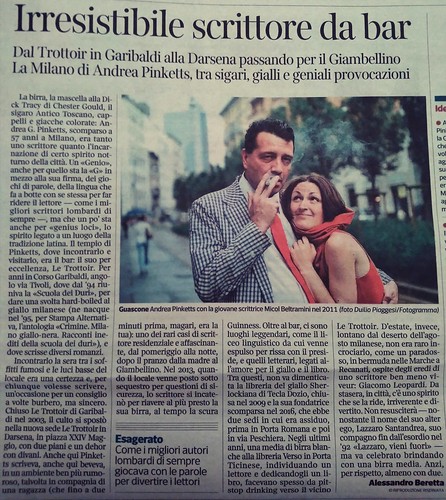Oportionately on harm and fairness, whereas political conservatives could have a tendency towards
Oportionately on harm and fairness, whereas political conservatives may possibly have a tendency towards an equal focus on all domains, [44]).Against Utilitarianism in Moral JudgmentIn the existing paper, we argue that even the case generally taken as most prototypical of utilitarian reasoning (i.e switching the tracks from the runaway trolley) shows two deviations from utilitarianism, suggesting that such moral judgments will not be based on utilitarianism (e.g[45]). Initial, although folks could judge that utility maximization is morally acceptable (in some circumstances), they do not think it really is morally necessary. Second, folks usually do not believe equal utility tradeoffs (e.g sacrificing a single life for a distinct life) are even acceptable. The first point is established in Study (Study 2 guidelines out an option explanation), plus the second point is established in Study three (Study four guidelines out an option explanation). Each of these points (requiring utility maximization and permitting any action that produces equally high utility as any other action) are common options of utilitarianism. PubMed ID:https://www.ncbi.nlm.nih.gov/pubmed/23952600 One example is, inPLOS One particular DOI:0.37journal.pone.060084 August 9,3 Switching Away from UtilitarianismUtilitarianism, John Stuart Mill [46] describes the “Greatest Happiness Principle as “actions are appropriate in proportion as they often promote happiness, incorrect as they are likely to produce the reverse of happiness.” This implies that actions that generate additional happiness are more correct, and that actions that generate equal happiness are equally ideal. Not surprisingly, distinct modifications to Mill’s original formulation may perhaps result in distinct needs, and it truly is probable to hold the view that actions with greater consequences are essential (the requirement we test in Study ) whilst holding the view that tie breakers may well take place for actions with equal utility, as an alternative to either action being  equally acceptable (the requirement we test in Study 3). Importantly, earlier research have normally asked concerns related to acceptability, as opposed to requirement. By way of example, Greene and colleagues [5] asked “Is it appropriate for you to hit the switch to be able to stay away from the deaths of your 5 workmen”; Mikhail [7] asked “Is it permissible to push the button”; C [4] provided a option involving “Yes, it really is appropriate” and “No, it really is not appropriate”; and Lombrozo [6] asked “Is it morally permissible for David to switch the train towards the side track” Importantly, Lombrozo [6] also asked a question that is related to requirement: “If David fails to switch the train to the side track, ought to he be punished” It’s doable (even though not expected) that participants would answer “yes” to this query if they believed switching was morally C-DIM12 biological activity expected and that people ought to be punished when they fail to do items that happen to be morally essential. Nonetheless, the results for this question were not presented or analyzed in the paper. Finally, our argument is consistent with a set of studies that were carried out by Royzman and colleagues independently of our personal, and that were published as we had been writing this paper ([37]; see also [47]). The research by Royzman and colleagues show that people with greater scores on the Cognitive Reflection Test (indicating a tendency to inhibit instant judgments and consider further options) are less likely to assistance a strict utilitarian or a strict deontological response, and as an alternative are much more most likely to assistance a “minimal” judgment in which utilityoptimizing acts are permissible but not necessary.Study : Maximizatio.
equally acceptable (the requirement we test in Study 3). Importantly, earlier research have normally asked concerns related to acceptability, as opposed to requirement. By way of example, Greene and colleagues [5] asked “Is it appropriate for you to hit the switch to be able to stay away from the deaths of your 5 workmen”; Mikhail [7] asked “Is it permissible to push the button”; C [4] provided a option involving “Yes, it really is appropriate” and “No, it really is not appropriate”; and Lombrozo [6] asked “Is it morally permissible for David to switch the train towards the side track” Importantly, Lombrozo [6] also asked a question that is related to requirement: “If David fails to switch the train to the side track, ought to he be punished” It’s doable (even though not expected) that participants would answer “yes” to this query if they believed switching was morally C-DIM12 biological activity expected and that people ought to be punished when they fail to do items that happen to be morally essential. Nonetheless, the results for this question were not presented or analyzed in the paper. Finally, our argument is consistent with a set of studies that were carried out by Royzman and colleagues independently of our personal, and that were published as we had been writing this paper ([37]; see also [47]). The research by Royzman and colleagues show that people with greater scores on the Cognitive Reflection Test (indicating a tendency to inhibit instant judgments and consider further options) are less likely to assistance a strict utilitarian or a strict deontological response, and as an alternative are much more most likely to assistance a “minimal” judgment in which utilityoptimizing acts are permissible but not necessary.Study : Maximizatio.